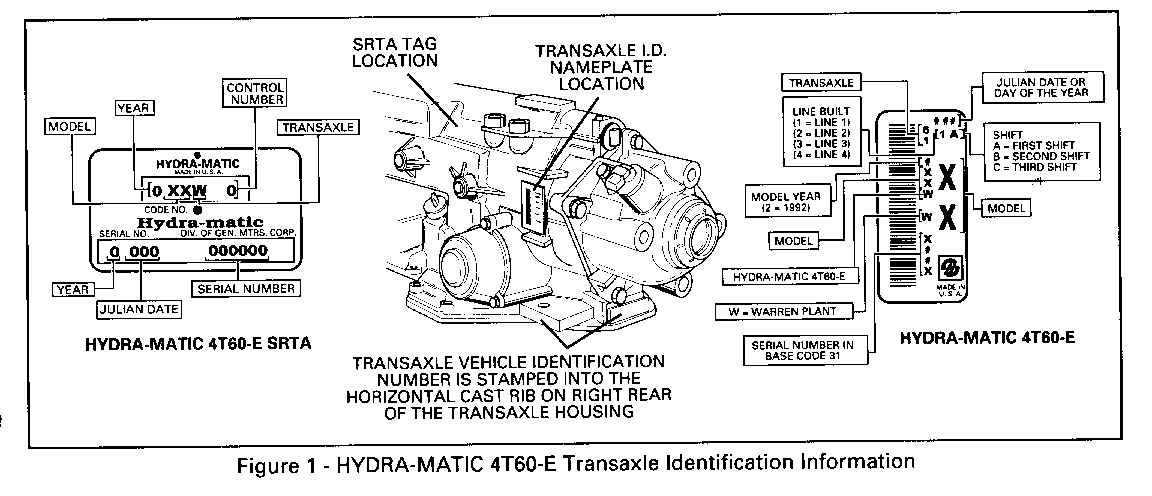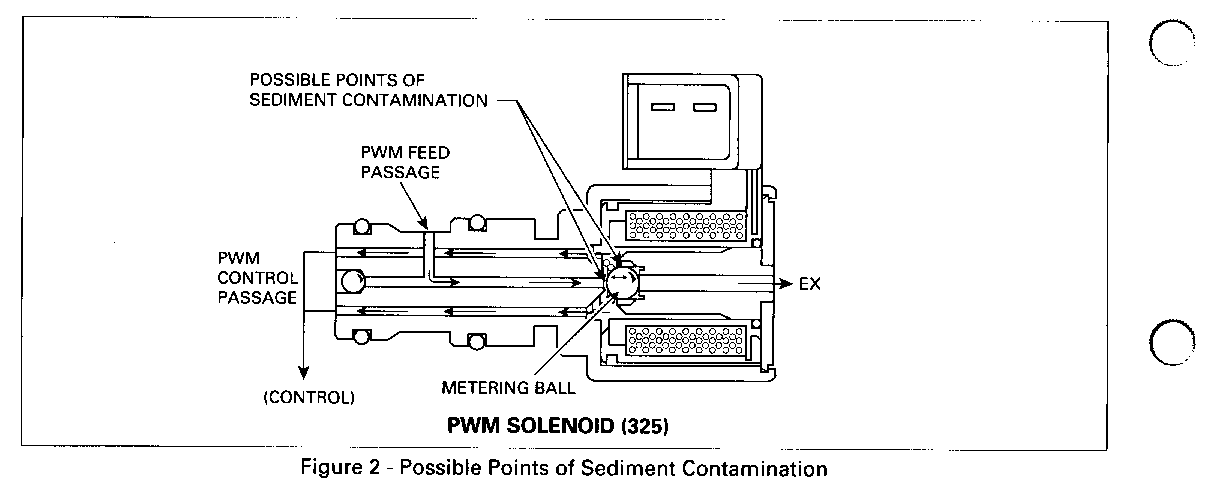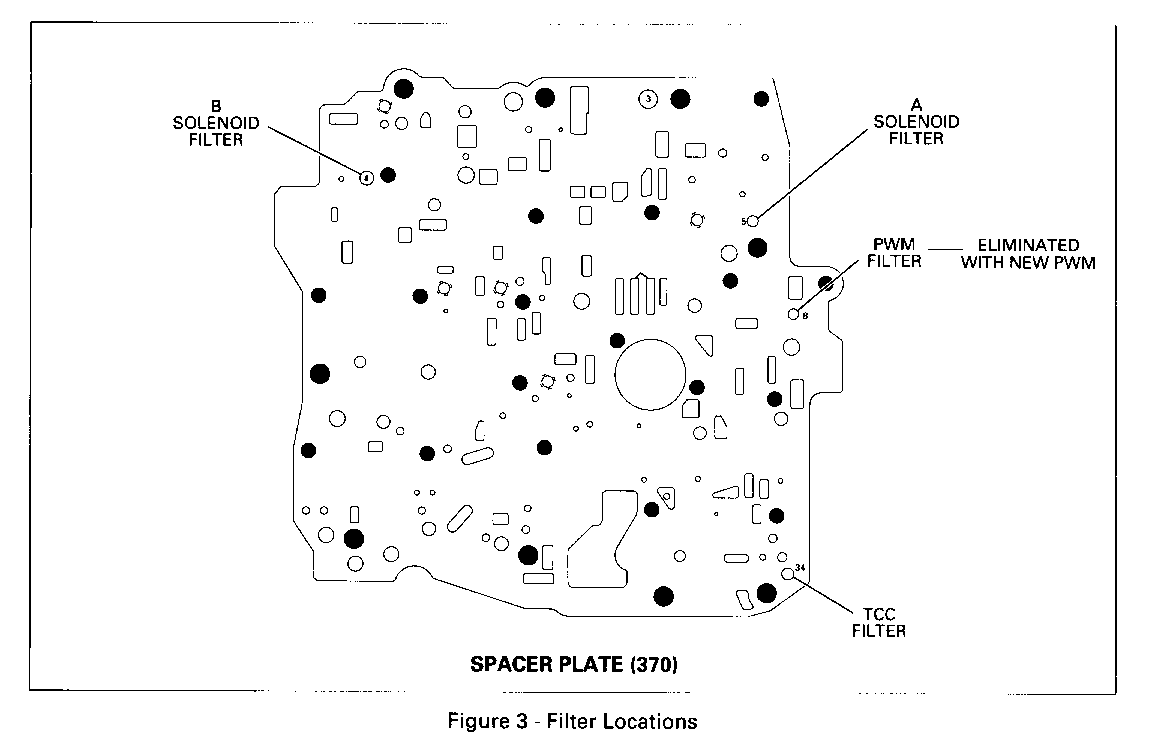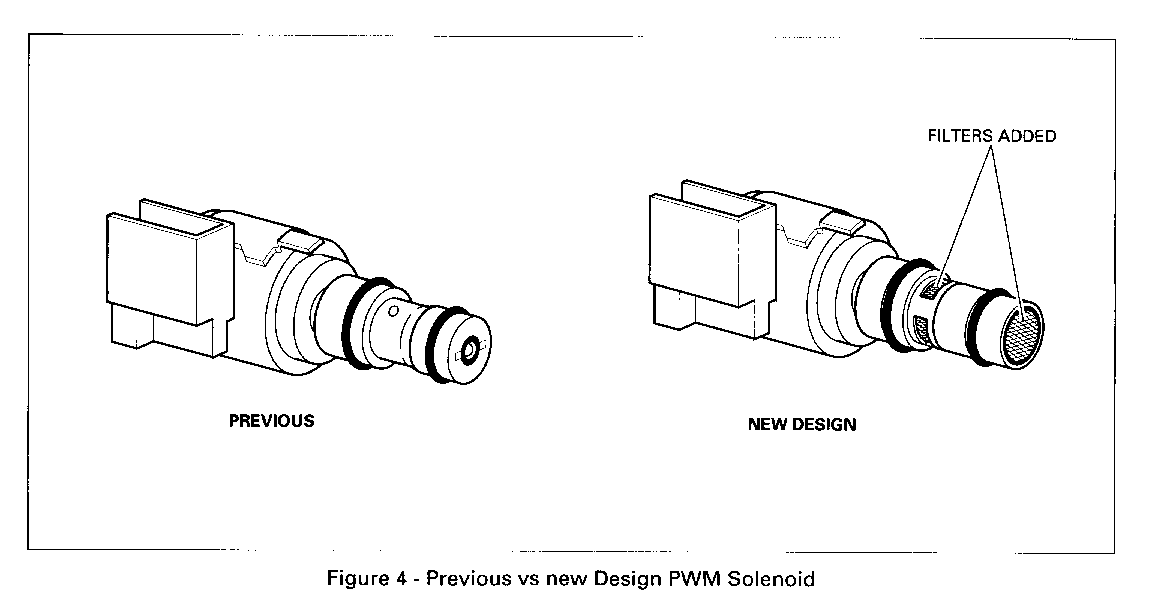NO/SLIPPING TORQUE CONVERTER CLUTCH (SCREENS ADDED TO PWM)

SUBJECT: NO/SLIPPING VISCOUS CONVERTER CLUTCH (VCC) WHEN COMMANDED ON (CODE 39)
MODELS AFFECTED: 1993 DE VILLES, SIXTY SPECIALS, ELDORADOS, AND SEVILLES
Some 1993 DeVilles, Sixty Specials, Eldorados, and Sevilles equipped with a Hydra-Matic 4T60-E (RPO M13) transaxle built on or before January 26, 1993 (Julian Date 026) may exhibit no VCC apply or a slipping VCC condition (possible code 039). Refer to Figure 1.
NOTE: The VCC mod solenoid will normally mis-operate in either a full apply or a full slip mode. These conditions should not be confused with a VCC chuggle or VCC shudder which is more likely engine performance related.
NOTE: Excessive heat on torque converter may be visible when VCC slipping condition exists.
This condition may be due to sediment trapped in the Pulse Width Modulated (PWM) VCC mod solenoid. Refer to Figure 2. Sediment may enter the solenoid from either the control or feed passages and lodge in the flow path around the metering ball causing an undesired exhaust leak.
NOTE: To prevent a customer comeback careful diagnosis is highly recommended. Do not automatically assume that the condition is caused by the above concern.
Following is a list of other items that may possibly affect Viscous Converter Clutch (VCC) engagement and release. (Refer to the appropriate Service Manual for illustration number reference and component location.)
o Improper operation of PCM
o Poor connection between PCM to vehicle wiring harness and/or vehicle wiring harness to transaxle pass through connector (35)
o Converter clutch valve (335) stuck
o Converter clutch regulator valve stuck (332/334)
o Turbine shaft seals (519, 520) damaged or missing
o Converter clutch blow off checkball (420) seated or damaged
o Damaged oil pump drive shaft seal (228)
o Missing or mislocated No. 1 checkball (372 [A])
o VCC solenoid O-ring (316) leaking
o VCC solenoid (315) inoperative
To prevent sediment from entering the solenoid the spacer plater filter was eliminated (on units built on/after Julian Date 027 - January 27, 1993) and screens were added to the solenoid control and feed passages. Refer to Figures 3 and 4.
NOTE: When servicing units built prior to January 27, 1993 (Julian Date 027) it is not necessary to remove the spacer plate filter when replacing the prior solenoid with the new solenoid.
All 1993 4T60-E transaxle models are affected.
Current New P/N P/N Description Qty. ------- --- ------------ ---- 8681523 8683535 Solenoid, Assembly Pulse Width Modulator-PWM 1
Parts are currently available from GMSPO.
Labor time should be charged under Operation Number K6557.
Refer to the appropriate Service Information Manual - Automatic On - Vehicle Service, Section 7A, for the proper on - vehicle service to remove and replace a PWM solenoid.




General Motors bulletins are intended for use by professional technicians, not a "do-it-yourselfer". They are written to inform those technicians of conditions that may occur on some vehicles, or to provide information that could assist in the proper service of a vehicle. Properly trained technicians have the equipment, tools, safety instructions and know-how to do a job properly and safely. If a condition is described, do not assume that the bulletin applies to your vehicle, or that your vehicle will have that condition. See a General Motors dealer servicing your brand of General Motors vehicle for information on whether your vehicle may benefit from the information.
